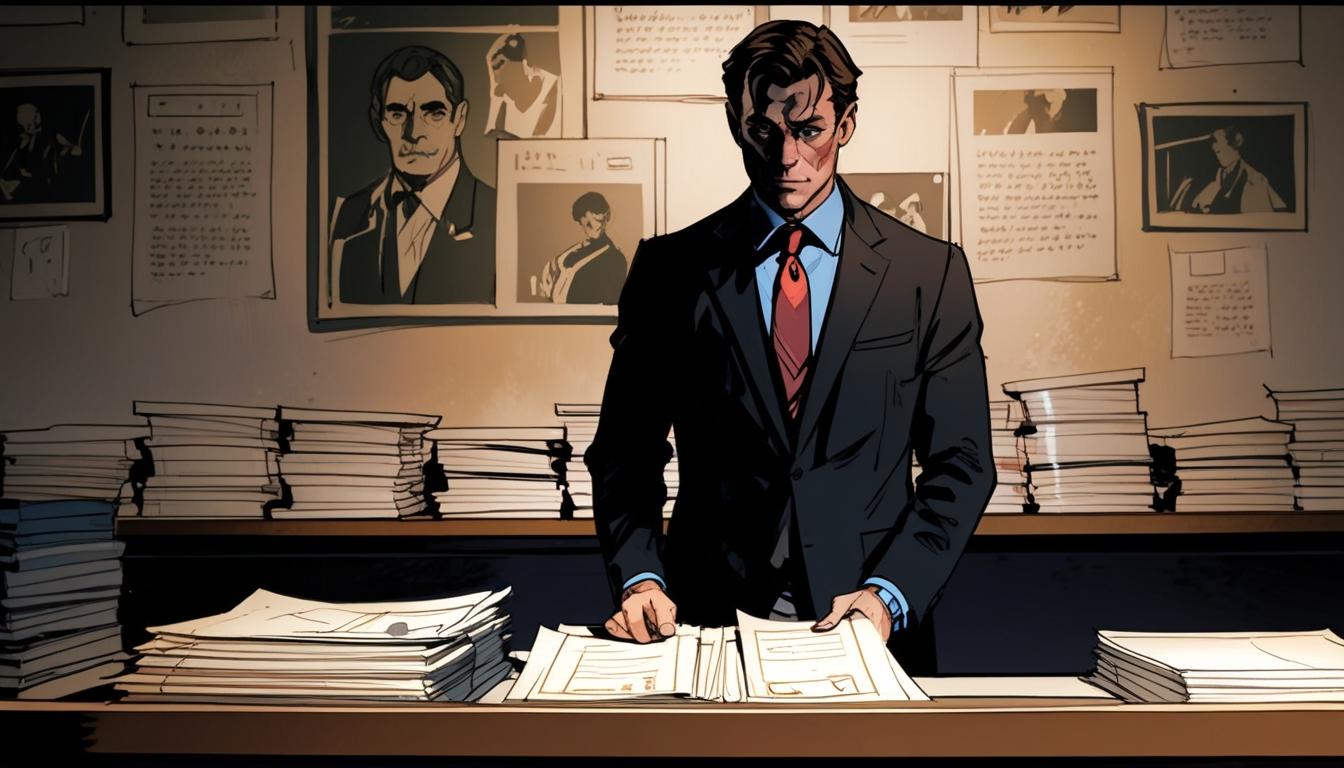Prominent Art Dealer Charged with Terrorist Financing Offences
Oghenochuko Ojiri, a well-known art dealer and feature on BBC's Bargain Hunt, has been charged with multiple violations relating to terrorist financing. The Metropolitan Police confirmed that the 53-year-old faces eight counts of failing to disclose suspicious transactions as mandated by Section 21A of the Terrorism Act 2000, making him the first individual prosecuted for this specific offence.
The charges stem from an investigation conducted over a year-long period from October 2020 to December 2021, led by the Met's National Terrorist Financial Investigation Unit in collaboration with various government agencies, including the Treasury and HMRC. The complexity of these allegations highlights the serious implications of financial compliance in sectors vulnerable to exploitation.
In a Q&A on the BBC’s website, Ojiri expressed his passion for collecting various modern art forms, describing his work as an “absolute obsession.” His appearances on Antiques Road Trip since 2021 have further solidified his reputation in the art community. However, this latest charge casts a shadow over his professional standing.
The topic of compliance in the art industry has garnered increased attention in recent years. Professionals in high-value sectors, particularly art dealers, face stringent regulations intended to combat terrorist financing. An article published by the BBC emphasised the vital role that vigilance plays in this context, underscoring the legal obligations experts must meet to report suspicious financial activities. Recent cases of art professionals facing legal challenges for non-disclosure have illustrated the heightened consequences of failing to adhere to these rules.
Ojiri's case is part of a broader trend noted in various reports regarding the rise of similar charges against individuals in the art market. This has been linked to ongoing efforts by law enforcement to clamp down on potential money laundering schemes that exploit the art world. Such activities not only threaten national security but also undermine the integrity of the financial system within this high-value sector.
Legal frameworks are increasingly enforced to ensure accountability, as the art market can be susceptible to manipulation for illicit financial activities. The Guardian and other outlets have highlighted recent incidents where art dealers faced prosecution for failing to report suspicious transactions, showcasing a growing awareness and enforcement of anti-terror financing laws. The implications extend beyond individual cases; they raise significant questions about the responsibilities of art dealers and their compliance with financial regulations.
As Ojiri prepares to appear at Westminster Magistrates’ Court, the case serves as a critical reminder of the intersection between art and financial integrity. It underscores the necessity for transparency in transactions, fostering a culture of compliance that not only protects individual businesses but also contributes to safeguarding national security.
The implications for the art market are profound. Observers are now calling for heightened scrutiny and tightened regulations in light of the continuing challenges associated with terrorist financing and money laundering. The outcomes of cases like Ojiri's could shape the future landscape for art dealers in the UK and beyond.
Reference Map:
- Paragraph 1 – [1], [5]
- Paragraph 2 – [1], [6]
- Paragraph 3 – [2], [3], [4]
- Paragraph 4 – [5], [6], [7]
- Paragraph 5 – [3], [4], [6]
Source: Noah Wire Services
